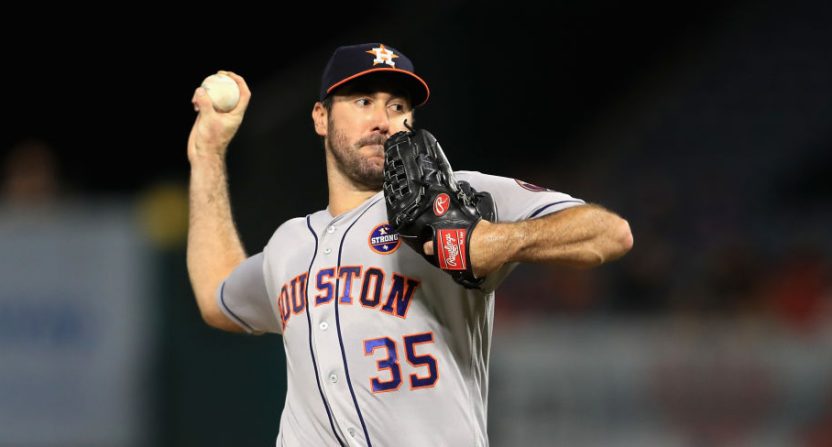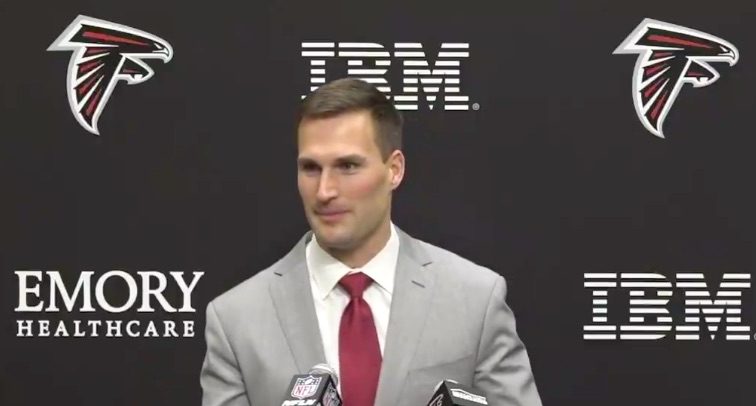The new U.S. federal tax bill passed late last year could have plenty of sports implications, but one of the most interesting ones may be what it could mean for trades. One of the bill’s changes involved inserting “real” into a corner of the tax code that previously allowed farmers, manufacturers, and others to trade certain “like-kind” assets like machinery without paying capital gains taxes until those assets were sold. Putting in “real” limits that exception to real estate, and could raise an estimated $31 billion in further taxes over the next decade.
But that section also allowed pro sports teams to trade players without assigning those players dollar values or paying capital gains tax after trades, and was explicitly applied to sports teams for decades thanks to a 1967 Internal Revenue Service ruling. The change here might drastically alter how trades are conducted. As Jim Tankersley of The New York Times writes, if this isn’t overturned, teams will have to figure out how to value newly-acquired players on the books, and they might have to pay taxes on them:
The provision is raising concerns and questions across Major League Baseball and the National Basketball Association, starting with: How do you value a player?
“There is no fair-market value of a baseball player. There isn’t,” said Daniel R. Halem, the chief legal officer of Major League Baseball. “I don’t really know what our clubs are going to do to address the issue. We haven’t fully figured it out yet. This is a change we hope was inadvertent, and we’re going to lobby hard to get it corrected.”
…It is unclear how aggressively the Internal Revenue Service would enforce the provision with sports teams. Mr. Halem, of Major League Baseball, said the league was asking the Treasury Department for guidance on how to come up with valuations for tax purposes. If such a system was the intended result of the law, he said, “then write some regulations, tell us what you mean.”
…“I don’t think that they thought about baseball when they thought about this change,” said Kari Smoker, an accounting professor at SUNY Brockport who has consulted for the N.B.A. and National Hockey League players’ associations in legislative disputes over sports taxation. “It raises all kinds of issues, which I think were easier to ignore, probably, when we had a simple rule that it was a like-kind exchange.”
It’s figuring out what this might mean that’s a particular challenge. As Tankersley notes, the same player doesn’t necessarily have the same value to two different teams, which is why trades are made in the first place. A team that needs shortstop depth (like, say, the Twins following Jorge Polanco’s suspension) might place much more value on someone who could fill that gap than a team that has an excess of middle infielders. And teams that are in contention for a division title or a wild card playoff berth might value additional big-league pieces more, while rebuilding teams might value prospects more. Theoretically at least, every trade is seen as a win for both sides from at least some angles, and a strict interpretation of this might see every team charged with some form of capital gains tax following every deal. That might wind up dramatically reducing the number of trades we see.
It doesn’t appear that there’s a particularly good way to value players for this kind of transaction, too. If this was done strictly on a contract basis, then teams that picked up established veteran stars (like, say, the Houston Astros grabbing Justin Verlander last year) in exchange for prospects would be viewed as gaining tens of millions compared to the team they traded with, the Detroit Tigers. But the Tigers had their own claim for winning that trade, as the prospects were more important to their particular situation. So both teams could wind up being taxed, which is a negative incentive to make these kinds of trades. (Which, as Tankersley notes, is especially ironic in the Verlander case, as Representative Kevin Brady, the chief writer of the House tax bill, is a prominent Astros’ fan.)
Another interesting element of this is that trades like the Verlander one can’t be properly evaluated even by sabermetric valuation stats like Wins Above Replacement, as it’s difficult to compare a proven major-leaguer with prospects that might or might pan out. So that throws a further wrinkle into the equation. And even a guy who’s developed software specifically to put dollar values on players told Tankersley there’s no consensus on how to do this for tax purposes:
Adam Guttridge views the trade of Mr. Verlander as a win-win for both the Astros and Tigers, which would have resulted in a capital-gains tax bill for each of them. Mr. Guttridge is a former manager of baseball research and development for the Milwaukee Brewers and the co-founder of NEIFI, a consultancy that has developed software to attach a dollar value to every professional ballplayer and his expected future performance.
How to calculate such value for tax purposes “is the question that somebody has to answer, that nobody in the baseball space has,” Mr. Guttridge said. “There’s certainly no consensus among the 30 teams.”
And that’s before you get to further potential implications of the elimination of this “like-kind” exemption for non-real property. Removing the exemption could get really interesting for leagues that have luxury taxes, as some deals (like the Portland Trail Blazers’ trade of Noah Vonleh and cash to the Chicago Bulls last month for the rights to Milocan Rakovic) are made specifically to avoid the tax threshold. That’s another example that could see both sides getting taxed, with the Bulls possibly hit for picking up a player and the Trail Blazers possibly taxed on the money they saved by avoiding league taxes. Oh, and if players all of a sudden carry dollar-value numbers on a club’s books, what will that mean for their contract negotiations?
The possible implications of the like-kind shift and other changes to the tax laws go well beyond sports, of course. As Tankersley wrote in another piece last week with Alan Rappeport, farmers, restaurant owners and retailers are among the many pushing for changes to the legislation. But the like-kind change and its potential ramifications for sports is perhaps particularly fascinating considering how much of a shift it could mean to how teams do business; if this is fully and strictly implemented, trades might become far less common across North American professional sports.
There’s no guarantee this will happen, of course. Pro sports teams and leagues wield a lot of lobbying power, and it’s far from clear that the bill was intended to tax teams on trades, so there may not be a ton of opposition to altering it. But it’s certainly a fascinating situation to watch, and one that could have major impacts on the sporting world.






